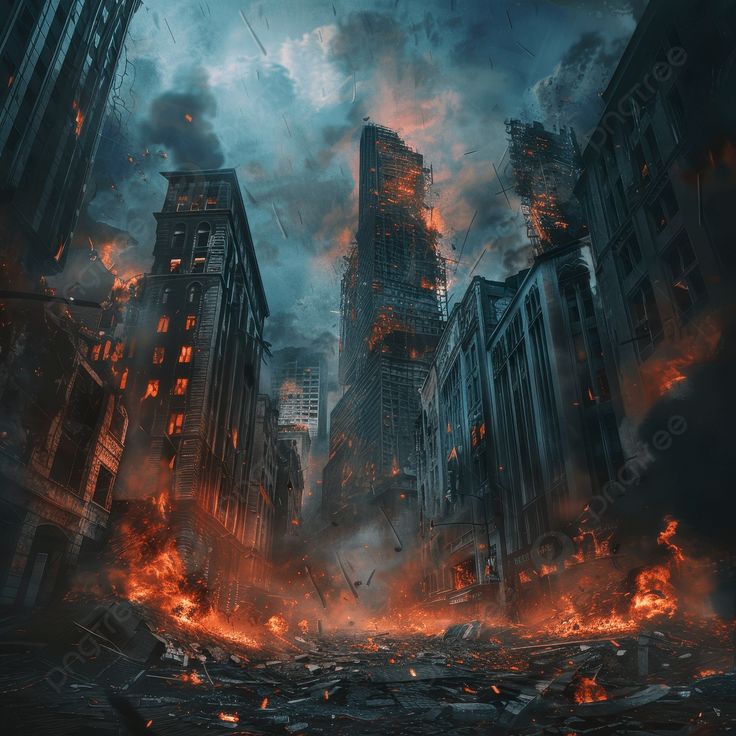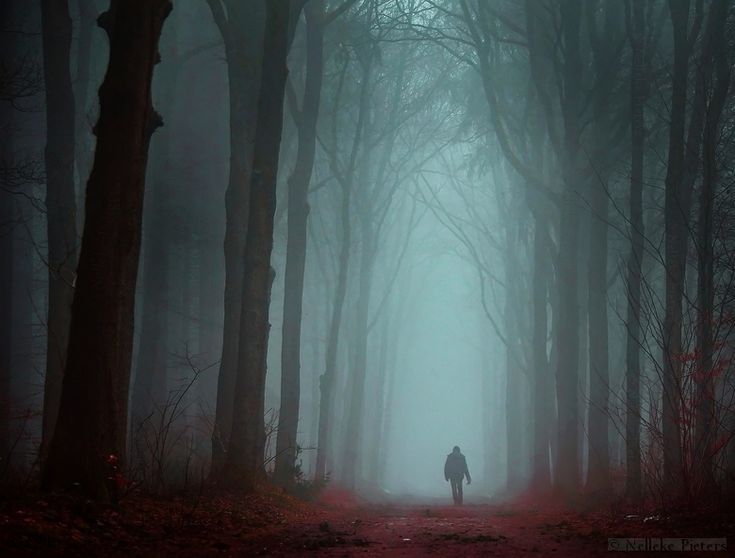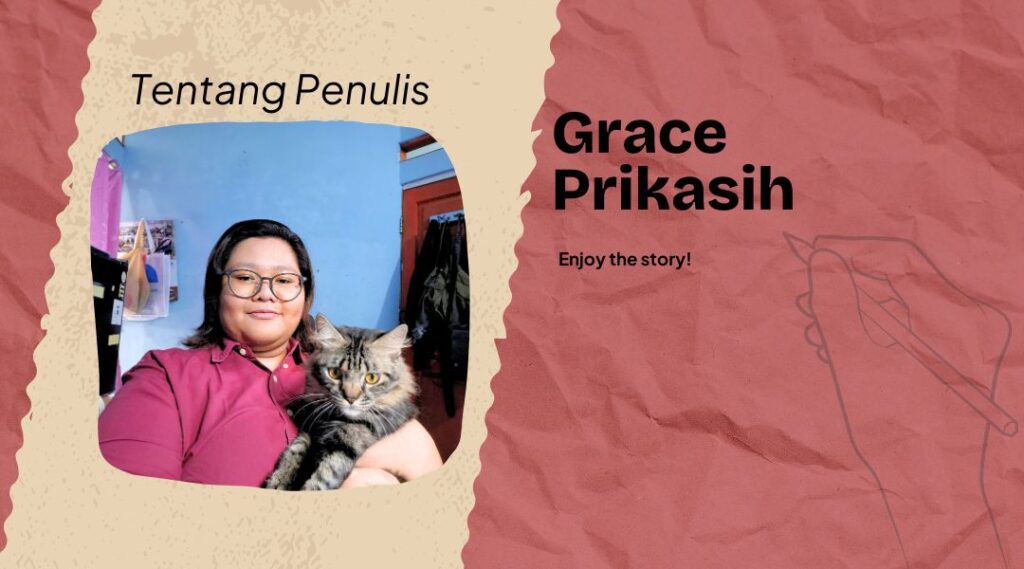A Short Story - Flame to Ash
Penulis: Grace Prikasih – UKI
A young scientist, driven by vengeance for his family’s death, descends into madness and becomes a ruthless destroyer who no longer sees humanity in those who hold power.
A Flame Snuffed Too Early
The City of Stars gleamed like heaven against the black horizon.
From a distance, it was perfection — towers of glass and gold, floating lights painting the night, laughter echoing through wide streets of luxury and illusion. Tourists called it the jewel of the continent, a paradise where dreams were bought and sold under a thousand neon constellations.
But for those who lived beneath, under the sparkling surface and the painted smiles, it was a city built on rot.
The mines that powered its brilliance stretched deep underground — illegal, unregulated, and full of the forgotten poor. The people who dug through the dirt were not citizens; they were shadows. Disposable hands that kept the lights burning above.
Among those shadows lived Reichi Kentarou, the son of two illegal miners. He was a quiet boy, pale from lack of sunlight, but sharp-eyed — always tinkering with broken scraps of machinery his father brought home. His mother often told him that his hands were made for creation, not for digging through dust. Reichi believed her. He dreamed of building something — anything — that would one day take them to the surface, where the real stars shone.
But the City of Stars was never meant for people like them.
One summer evening, when the heat inside the tunnels grew unbearable, the government made an announcement across every broadcast tower in the province:
“For the safety and future of our paradise, all illegal mining operations are to be removed. The City of Stars must remain pure and radiant.”
The message repeated through every speaker, every television screen, even underground.
To Reichi’s parents, it was noise — another empty declaration. To the government, it was justification.
The next morning, the sky trembled.
Explosions tore through the mines without warning. The tunnels collapsed one after another — screams swallowed by dust and fire. Reichi’s father grabbed him, dragging him toward a side passage as the ceiling began to crumble. His mother’s voice echoed behind them — desperate, breaking — before the second blast drowned it out.
He never saw her again.
When he woke, he was alone. His father’s arm lay limp beside him, crushed under stone. The air was thick with smoke and silence.
Reichi crawled toward the faint light above, past bodies and broken metal, until he emerged on the surface — weak, bleeding, and half-blind.
Above him, the city was celebrating.
Fireworks filled the sky. Music played. The tourists cheered for the government’s “successful cleansing operation.”
No one looked down to see the ash rising from the earth.
Reichi was ten years old when he learned what the City of Stars really was — not a city of dreams, but a graveyard painted with light.
He wandered the streets, ignored by the glittering crowd. His mother’s broken goggles hung from his neck like a relic of another world.
He watched the towers burn with artificial color and whispered to himself, voice hollow and trembling:
“If this is what they call beautiful… then I’ll show them what beauty looks like when it dies.”
That night, the boy who once wanted to build began to plan how to destroy.

A Rise of Hope or A False Light?
Reichi learned fast how people wanted to be seen.
They did not want truth; they wanted stories that made them feel safe. So he began telling them stories.
At first they were small — whispered promises in alleyways, quiet fixes to broken pipes, a donated generator in a district the city had “forgotten.” He made spectacles of compassion: photographed children given toys, staged rescues in burned-out tenements, and released grainy videos of smiling faces saved by his charity. The clips spread through the province like wildfire; tourists barely noticed, but the poor began to whisper his name.
To them, he seemed a miracle. To the officials, he was a useful nuisance — a reformist with enough charisma to channel discontent, but not enough power to threaten the towers. That was their mistake.
Reichi never asked for power. He asked for trust.
Millions of hands reach for the things that promise ease. Reichi supplied them: clean water stations labeled “City Renewal,” public clinics with flashy banners, community talks where he listened with theatrical humility. Crowds gathered. Cameras trained. Donations came. He accepted honors he never intended to keep, shaking hands with people who later chanted his name in a rhythm he had taught them.
Beneath the smiling photographs and staged rescues, Reichi was constructing something else entirely — a lattice of influence woven through municipal contracts and volunteer networks, through the trust of the afflicted and the complacency of the elite. He mapped pipelines, memorized schedules, and learned the habits of those who guarded the province. He cultivated a language the city understood: spectacle.
And then he altered the language of the city’s most mundane mercy — water.
Not in wild, scientific detail that could be repeated on paper, but in the story it became his quiet revolution. He introduced treatments to municipal sources under the pretense of purification and public health. The announcements used the same soothing cadence as the city’s other lies: safe, regulated, for your benefit. People queued eagerly beneath the neon for clean glass after glass, and when the soldiers returned late from patrol, dusty and thirsty, the same water cooled their throats.
No one blamed him for the subtle changes that crept into conversation and obedience — an ease of suggestion, a tendency to follow, a mild hush where argument had once lived. They called it relief. They called it progress.
As his influence spread, the government’s eyes turned sharper. Minor incidents were logged: a block of workers moving as one under an instruction they later could not recall, a security patrol failing to pursue an obvious threat. Internal memos requested surveillance increases. A unit — small, efficient, dressed in crisp black — began to thread through the city, asking questions in corridors of power.
The unit could detect patterns, but not intent. It could map anomalies, but not motive. Reichi hid behind the best camouflage the City of Stars offered: his own constructed benevolence. He met with ministers under soft lights, proposing sanitation projects and urban renewal, smiling as he reassured them that their shining province needed only small fixes. He gave speeches that sounded like love letters to the city, and the cameras ate every word.
Power is not taken in a single assault; it is cultivated in patience. Reichi cultivated patience like a garden. While officials debated and the black-suited unit hunted shadows, he placed loyalists — gentle-faced organizers, clinic nurses, sanitation foremen — into positions where nothing would seem unusual. When a reservoir needed maintenance, the familiar faces were already there. When a military barracks requested water supplies, the procurement office smiled at the tender list bearing his clinics’ name.
Every act was theater, and the audience had been conditioned to applaud.
There were moments when the machine nearly broke him. An unexpected inspection, a rumor of an informant in the clinics, the cold stare of a commander who suspected more than he would admit — each threatened to unravel years of carefully staged compassion. Reichi answered them with the simplest weapon he had: presence. He showed up at funerals, at vigils, at contract signings. He touched shoulders and made promises. People who had once cheered him now whispered that he was the province’s conscience.
Inside, the man who smiled for photographs felt nothing but a widening void. Empathy had been a tool; grief had been a map. He no longer recognized the faces of those he saved — only their function in his plan. The more the city thanked him, the less he cared.
Then came the first small betrayals.
A clinic nurse who had helped Reichi’s first outreach vanished one night. A sanitation foreman refused an order and was reassigned to a far depot with a bleeding excuse. The black-suited unit arrested a low-level organizer on suspicion of sedition, but the detainee returned home days later with no charges — and with a look of blank gratitude that chilled every witness.
Still, the province celebrated. The Festival of Lights approached, and with it the tourist season that would pack the streets and fill the hotels. Reichi watched the calendar with a patience that measured in heartbeats not yet taken. To topple a palace of glass, one needed not only the hands that dug the foundations but the servants who polished the chandeliers. He bent both to his will.
Whispers in the hallways of power grew into questions at cabinet meetings. The commander of the black-suited unit presented photographs — smiling crowds, tenders awarded, pipelines inspected by men in Reichi’s emblem. The ministers argued: is he savior or saboteur? The debate stalled at the throne of spectacle. No leader wanted to stunt the province’s image by accusing the man who kept the poor’s hope visible enough for tourist cameras.
Reichi, watching them argue under crystal chandeliers, felt only an obscene satisfaction, like a man who taps a wound and waits for the fever to rise.
By the time the Festival arrived, his influence had salted the province. Conversations hummed with phrases he had fed them. Soldiers paused before orders they might not execute. Citizens lined the promenades, faces turned upward to the fireworks — and down below, in water mains and storage tanks, the quiet work of change waited.
The conflict was no longer a simple duel between an individual and a state. It had become a woven thing: faith and performance, fear and spectacle, the thin cord of trust and the heavy chain of obedience. Reichi had set the pieces in motion; what remained was for the world to believe the story he had told it.
And belief, in the City of Stars, was the deadliest thing of all.

The Collapse of Heaven
The Festival of Lights began with thunderous applause.
Tourists flooded the streets of the City of Stars, cameras flashing, laughter echoing through the golden avenues. The province glittered like a mirage — the perfect paradise, reborn again for the world to adore. Above the crowd, banners fluttered with the government’s new slogan:
“Unity Through Radiance.”
And among those who cheered, Reichi Kentarou smiled.
He stood at the balcony of the Central Administration Hall — the heart of the province — dressed in pristine white, invited as a guest of honor. The officials believed he was their ally, the face of “public reform.”
They didn’t know that everything they stood on — every pipe, every system, every drop of water running beneath their feet — was already his.
The night reached its peak.
Fireworks lit the sky like bleeding stars, and the grand speech began. The governor stepped onto the stage, voice amplified across the plaza:
“Tonight, we celebrate progress. We celebrate peace. We celebrate—”
He never finished the sentence.
A tremor rolled through the ground, so faint at first that people mistook it for the fireworks. Then the sound deepened — metal groaning, glass vibrating. One of the fountains behind the stage erupted, spraying not water but black, shimmering liquid that hissed as it touched the marble.
Confusion spread. The crowd murmured.
And then the lights began to fail.
Reichi closed his eyes as the city’s glow flickered and died.
In that moment, the world above became what it truly was: hollow, trembling, and afraid. From every waterline, from every reservoir, the corruption he had prepared for years finally rose — not a chemical or poison that killed flesh, but something worse: it broke the mind.
The first screams came from the soldiers.
Their formation faltered, eyes glassy, movements disjointed. Commands shouted through the radios dissolved into laughter, then into silence. Civilians froze mid-step, their smiles lingering like masks, waiting — listening — for a voice to tell them what to do.
Reichi gave it to them.
His voice echoed through the emergency broadcast towers, soft, calm, unhurried:
“The City of Stars shines no more. Now, you will see what your light has done.”
Panic erupted.
The plaza became a nightmare of color — people running, crying, fighting, some simply standing still with empty eyes. Buildings that had been symbols of hope crumbled under the pressure of explosions planted in their foundations. Flames reflected off the glass towers, painting the sky in shades of red and gold.
Reichi walked through it all.
The soldiers who saw him didn’t fire. Some saluted. Others simply dropped their weapons and fell to their knees. His influence ran too deep — obedience carved into their veins.
He stepped over bodies and broken flags, making his way to the governor’s podium. The man was still alive, crawling toward the edge, coughing blood, eyes wide in disbelief.
“Why… why would you do this?” he gasped. “You killed everyone—your own people!”
Reichi knelt beside him, expression unreadable.
“They were never mine,” he whispered. “They belonged to you. And you killed them long before I ever did.”
The governor’s body went still. Reichi stood again, turning his gaze toward the burning skyline — the once-perfect paradise now swallowed in chaos.
For the first time since his parents’ death, he felt something that resembled peace.
Not joy. Not triumph. Just the hollow quiet that comes after the end of a long song. The City of Stars was finally dark — no more lights, no more lies, no more laughter hiding the rot beneath.
But as he watched the flames consume the horizon, he realized something that made his heart twitch for the briefest second.
The faces of the people, frozen in obedience or fear, looked exactly like the ones he’d seen buried in the mines years ago. Silent. Helpless. Empty.
And for a fleeting heartbeat, Reichi wondered if he had become the same monster that had taken everything from him.
Then the thought vanished — swallowed by the roar of another explosion.
He turned away, his expression blank, and walked into the burning streets, a ghost among the ruins of paradise.
The City of Stars had fallen.
And Reichi Kentarou, the boy who once dreamed of creation, had finally completed his masterpiece — destruction disguised as salvation.

The Echo of Silence
Days bled into one another. The smoke refused to leave the sky.
The once-dazzling City of Stars — the province of music, laughter, and neon — had become nothing more than a grave of glass and steel.
No tourists came now.
No festivals, no light shows, no sound but the wind scraping across ash-covered streets.
The media called it the collapse of heaven. The government called it terrorism.
But to those who survived — the citizens who woke up from their obedience, dazed and broken — there were no words at all. Only silence.
Reichi watched from what remained of the outskirts.
He lived in the shell of an old communications tower, surrounded by flickering screens that showed the ruins of his creation. Most channels had gone dark, but a few still played — shaky footage of survivors crawling through debris, soldiers searching for missing officials, a little girl crying beside a shattered statue of the governor.
Each scene should have satisfied him.
It was everything he had promised himself — justice, vengeance, balance. Yet, when the silence settled, it didn’t feel like victory. It felt like staring into a mirror that refused to reflect.
He had destroyed the men who buried his parents, the system that called their lives illegal, the city that cheered for their death. But the faces on the screens were not theirs. They were new — children, wanderers, merchants, all caught in the same fire. Innocents in the crossfire of his perfect plan.
And still, the part of him that could care was fading, like smoke losing shape in the wind.
The world outside the province responded as all governments do — with fear.
Neighboring regions cut contact, declared quarantine, and erased the City of Stars from their maps. Rescue teams never entered. Every transmission from the city was tagged as contaminated.
But within that silence, something unexpected grew.
Whispers spread among the ruins — survivors who spoke of Reichi not as a monster, but as a prophet. They repeated his final broadcast like scripture:
“The City of Stars shines no more. Now, you will see what your light has done.”
They called themselves The Dimmed, people who believed that destruction had purified the world. They gathered around broken fountains and lit candles beneath the scorched billboards, waiting for the man who had brought the fall of paradise to return and lead them again.
Reichi saw them once, from a distance — the same way he used to watch the tourists celebrate. They sang softly under the twilight, their faces calm, their eyes hollow. He turned away.
He hadn’t meant to be their god. He had only wanted revenge.
But revenge, once it’s set loose, becomes faith for someone else.
He began walking the ruins at night, when the air was cooler and the firelight dimmer.
He visited the old mining fields — or what was left of them — where the ground was still cracked from the bombs that had taken his parents. Nothing remained there now but twisted metal and dust.
Kneeling on the blackened soil, Reichi pressed his palm against the earth. For the first time in years, his hands trembled.
“It’s over,” he whispered, though no one was left to hear it. “You can rest now.”
But deep down, he knew it wasn’t over. Because nothing born of vengeance ever ends — it just changes hands.
He looked once more toward the dead city, its towers standing like tombstones beneath a blood-red sky. For a brief moment, he thought he saw movement — faint lights flickering in windows that should have been dark. Survivors? Or ghosts? He couldn’t tell anymore.
He turned away, walking down the cracked highway that led out of the province, his coat brushing against the ash. The world beyond waited — afraid, trembling, and unprepared for what he had done.
He didn’t know where he was going. Only that he couldn’t stay.
When the wind rose again, it carried faint echoes — fragments of old songs, broken laughter, and the whisper of water still running beneath the ruins.
The City of Stars was gone.
But its shadow would live forever — not as a memory of paradise, but as a warning of what happens when grief becomes god, and a man’s heart turns into the weapon he thought would save the world.
And somewhere, beneath the rubble and silence, the voice of a boy still whispered:
“If this is what they call beautiful… then let them see what beauty looks like when it dies.”

The Ghost in the Water
Years passed.
The ruins of the City of Stars were sealed behind concrete walls and razor wire.
No one was allowed to enter — no journalists, no wanderers, no historians. The world pretended it had never existed.
But silence never lasts forever.
When the wind blew across the sea, it carried the faint scent of ash and iron. Fishermen spoke of lights under the water at night — pale, flickering glows that moved like memories. Some said the city was still alive beneath the waves, its machines running without masters. Others said the dead still whispered through the pipes that stretched far beyond the province.
Governments dismissed it all as myth.
But myths have a way of returning when the truth is buried too deep.
The fall of the City of Stars became a lesson — rewritten, repackaged, and sold to the world as The Great Collapse.
Textbooks described Reichi Kentarou as a fanatic, a terrorist, a genius gone mad. His name was censored from most records, his image erased. Yet in the underbelly of the cities that survived him, graffiti began to appear — a single sentence scrawled on concrete and steel:
“He only gave us what we built ourselves.”
No one claimed it, but everyone knew who it referred to.
In the slums of the mainland, among those who still drank foul water and breathed recycled air, his legend grew again. They called him the Ghost Engineer — the man who turned paradise into a mirror. Some worshiped him. Others feared him. But none could deny what his fall had revealed: that even perfection can rot from within.
Some say Reichi Kentarou died in the collapse — buried beneath the ruins he created. Others believe he vanished into the borderlands, surviving as a ghost in the network, hijacking signals, watching the world from unseen eyes.
The truth is simpler, and crueler.
Reichi lived — but not as the man he once was.
He wandered through nameless towns, hiding behind false identities, watching people repeat the same mistakes under different lights. He saw the same smiles, the same illusions of safety. He heard politicians promising purity and order again, and realized that the cycle had already restarted.
One night, as rain fell over a forgotten village, he stood by a well — old, rusted, but still drawing from an underground flow.
He dipped his hand into the water and saw his reflection — pale, older, hollow.
For a brief, flickering moment, he thought he saw the faces of his parents beside his own.
By dawn, he was gone.
Some claimed they found his coat beside the well, others swore they heard his voice through broken speakers in abandoned towns. But no body was ever found.
And in the years that followed, the water across the provinces began to change — cleaner, softer, clearer than before. No one could explain it. No scientist could trace the origin. But in every drop, if one listened closely enough, there was a faint hum — mechanical, rhythmic, like a heartbeat.
Some said it was the city dreaming.
Others said it was him — the ghost in the water, still watching, still waiting, making sure the world never forgot what it had done.
The City of Stars never returned to life.
But the story of its fall lived on — a quiet warning whispered between generations:
“Beware the man who loses his heart in the name of justice.
For when his mercy dies, so does the world.”
And somewhere, in the ruins beneath the sea, a faint light pulsed once more — steady, patient, and unending, his final thought echoing in the dark:
“They wanted a city that shines forever… and I gave them lights that will never fade — the flames.”
*****

Dapatkan informasi mengenai kesehatan mental, edukasi seksual, dan tips pelajar hanya di Majalah Sunday, teman curhat remaja Indonesia.
